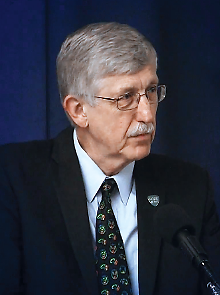BRAIN Initiative Gets New Participants, Financial Commitments
Abstract
An ambitious project aimed at mapping the human brain brings in more than $300 million in new investments, as well as new partners from industry, academia, and scientific foundations.
The BRAIN Initiative (for Brain Research through Advancing Innovative Neurotechnologies) was launched by President Obama in April 2013 to paint a new, dynamic picture of the brain and enable more thorough research on the most complex of human organs and the disorders that affect it.
As this bold endeavor enters its second year, the White House held a conference September 30 to review the progress already made by the BRAIN Initiative, discuss future goals and challenges, and announce new partners that have joined the fold in response to the President’s call to action for support of this ambitious undertaking.
Among the new groups aligning with the BRAIN Initiative are major industry leaders including Google and General Electric, signaling a promising “buy-in” from the commercial sector for this project. They joined with dozens of academic, medical, and private organizations to commit more than $270 million for the BRAIN Initiative over the coming years.
“The administration has been delighted by this thoughtful response,” said Thomas Kalil, deputy director for policy in the White House Office of Science and Technology Policy and senior advisor for science, technology, and innovation at the National Economic Council, during the conference.
“We’re going to be much more likely to achieve the ambitious goals of this initiative if we have a broad coalition of individuals and organizations, both inside and outside the federal government, that are providing their ideas, financial support, and expertise.”

NIH Director Francis Collins, M.D., Ph.D., highlights some of the exciting projects being funded by $46 million in grants for the BRAIN Initiative.
During the conference, the National Institutes of Health (NIH) also announced that it had finalized its first wave of grants totaling $46 million for the BRAIN Initiative; this funding will support 58 projects and more than 100 investigators. NIH Director Francis Collins, M.D., Ph.D., noted that these awards are just the first installment of a 12-year scientific plan focused on developing the tools needed to make the next leap in understanding the brain.
With the new partners and resources coming in, conference leaders also took the opportunity to highlight federal involvement in the project, with two new government agencies joining NIH, the Defense Advanced Research Projects Agency, and the National Science Foundation on the initiative.
The Intelligence Advanced Research Projects Activity, a program in the Office of the Director of National Intelligence, will sponsor applied-research projects that use multidisciplinary approaches to advance the knowledge of cognition and computation in the brain. And the Food and Drug Administration will work to enhance the transparency of the regulatory landscape for the—it is hoped, many—neurological medical devices that will be developed from BRAIN Initiative advances. ■



